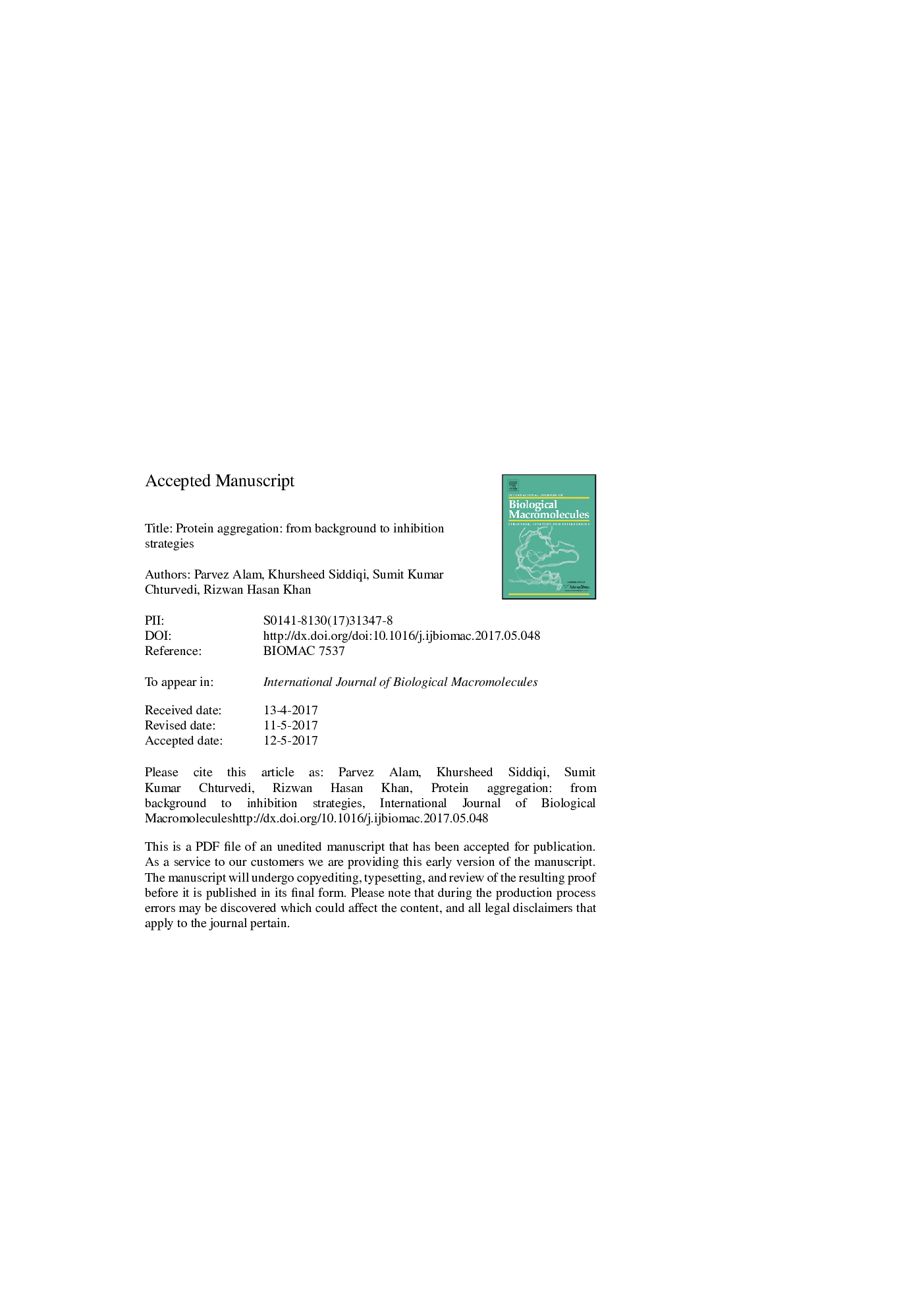| Article ID | Journal | Published Year | Pages | File Type |
|---|---|---|---|---|
| 5511845 | International Journal of Biological Macromolecules | 2017 | 41 Pages |
Abstract
The aggregation of specific proteins is hypothesized to cause several pathological conditions, which are collectively known as amyloid disorders. The aggregation of peptides and proteins is mainly associated with the perturbation of cellular function, ageing and various human disorders. Mounting evidence suggests that protein aggregation is often caused by mutation, environmental stress or the cellular response to an imbalanced protein homeostasis. This review summarizes the background information on the protein folding, misfolding, cellular strategies against protein aggregation, factors affecting protein aggregation and mechanism of protein aggregation. We then focus on various inhibitors for protein aggregation both in vitro and in vivo. We conclude with a perspective that better therapeutics could be developed by using cocktail of small molecule inhibitors for the treatment of amyloid diseases.
Keywords
Related Topics
Life Sciences
Biochemistry, Genetics and Molecular Biology
Biochemistry
Authors
Parvez Alam, Khursheed Siddiqi, Sumit Kumar Chturvedi, Rizwan Hasan Khan,
